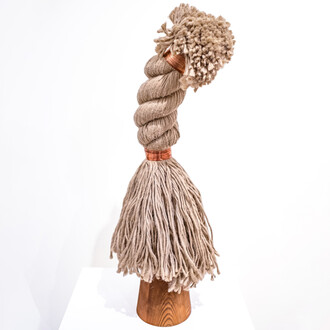To accompany and complement the exhibition of new work by Victoria Crowe for the Festival 2014 we have curated a survey of ten 20th century woman artists each of whom made a significant, individual contribution to the history of Modern British art. None is defined by the fact of her gender nor are we trying to make the case for a distinctive thread of femininity running through the period.
However their contribution is such that in art, as with literature, parity between the sexes has been achieved in the post War decades and there is no requirement for contemporary, critical ‘positive discrimination’.
Yet the individual stories mirror the age as each woman faced discrimination and critical dismissal and seemed to have more to prove to emerge from the shadow of a husband, partner or master, or otherwise embraced an individual, unconventional life to pursue the path of her vocation.
From the short life of Joan Eardley, full of passion to be herself and fulfill her destiny, to the long, productive life of Mary Fedden, quietly emerging as a beloved people’s painter but always a consummate picture-maker.
From the quietism and delicacy of Gwen John and Prunella Clough and Winifred Nicholson who emerged from behind the stifling, larger personalities of male contemporaries to achieve their proper places. To the sculptors Elisabeth Frink and Barbara Hepworth who match and balance the extraordinary richness of modern English sculpture. To the potter Gwyn Hanssen Pigott who learned with Coper and Leach but whose legacy forms the basis for so much contemporary practice from Edmund de Waal to Rupert Spira and Julian Stair.
And the Scots, Wilhelmina Barns-Graham and Anne Redpath each of whose genius, in very different ways, outshone and outlasted the conventionalities of their early lives to achieve full flowering and wide acclaim in the male-dominated worlds of the St Ives and Edinburgh Schools.
Victoria Crowe needs no leg-up from a feminist standpoint as she makes her way, quietly but in triumph, but she can perhaps look at the heroines of the Modern British School for the fact of their lives and the great legacy of their work.



















